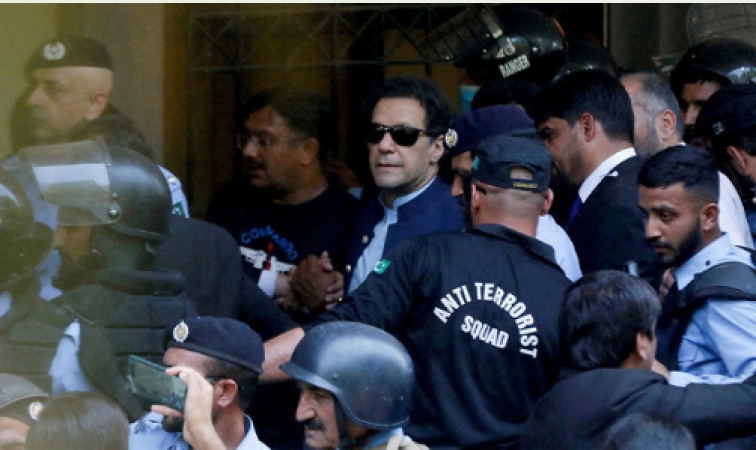
Islamabad: In Pakistan, a court has denied bail to former Prime Minister Imran Khan and his close aide, Shah Mahmood Qureshi. The charges they face revolve around the alleged exposure of official secrets.
This case is particularly sensitive as it coincides with Khan's active campaign to remove the current government from power, fueled by allegations of illegitimacy and involvement in a US-led conspiracy to oust him.
Imran Khan and Shah Mahmood Qureshi find themselves accused of a startling act: waving a confidential diplomatic letter at a political rally last year. They claimed this document was concrete evidence of a conspiracy orchestrated by the United States to remove Khan from his position as Prime Minister.
Also Read: What's the Latest Developments in the Nipah Virus in Kerala
The legal proceedings are conducted under the auspices of the Official Secrets Act, underscoring the gravity of the charges. The court, in denying bail to Khan and Qureshi, stated that the evidence against them was "strong" and cited concerns about the "likelihood of tampering with witnesses" if they were released on bail.
At the heart of this legal maelstrom is the broader political landscape in Pakistan. Imran Khan, a prominent figure in Pakistani politics, has been vigorously leading a campaign to unseat the current government. He has leveled accusations of illegitimacy and has accused the government of being complicit in the conspiracy to dethrone him.
Also Read: Pregnant Afghan Who Aided British Council Faces Deportation and Threats from the Taliban
On the other hand, the government staunchly denies these allegations and frames the case against Khan and Qureshi as a "political witch hunt." This high-stakes confrontation underscores the deep polarization within Pakistani politics.
The court's decision not to grant bail to Khan and Qureshi is poised to further intensify these political divisions. Supporters of Khan are likely to interpret the decision as an attempt by the government to suppress him, while those aligned with the government may view it as a demonstration of Khan being held accountable for his actions.
As the legal battle ensues, with the case scheduled to resume on September 26, the charges against Khan are multifaceted. In addition to the charges related to exposing official secrets, Khan also faces accusations of inciting violence and sedition, charges he vehemently denies.
Naeem Panjutha, Khan's lawyer, expressed disappointment with the court's decision and conveyed his intention to appeal the ruling. The legal proceedings promise to be protracted and closely watched, with far-reaching implications for Pakistan's political landscape.
The case involving Imran Khan and Shah Mahmood Qureshi reflects the intersection of politics and the judicial system in Pakistan. It underscores the complexities and sensitivities of the nation's political dynamics, where allegations of conspiracy and secrecy have the potential to shape the country's future.
Also Read: House Speaker McCarthy's Leadership Challenged by Right-Flank Colleagues
As Pakistan navigates these turbulent waters, the world watches closely, mindful of the implications for democracy, accountability, and the rule of law in the nation. Regardless of the eventual outcome, this case represents a critical juncture in Pakistan's political evolution, with consequences that extend well beyond its borders.